- Home
- Robert J. Crane
Hunters (Out of the Box Book 15) Page 6
Hunters (Out of the Box Book 15) Read online
Page 6
A couple of the cops caught sight of me and started to move to intercept, coolly, probably wanting to head this civilian intruder off before she could cause any damage to the crime scene. I pulled my ID and advanced on them, easily within meta killing distance, and they let me approach because I wasn’t in human killing distance, at least not in their view. I flashed Scotland Yard badge, hoping I was rocking the blond wig the way I thought I was. “Sarah Nelson,” I announced as I closed on them, and they actually relaxed, perhaps even more foolishly. “Scotland Yard.” I did an accent and everything, trying to make myself sound British. I’d been practicing.
“Ye’re the special metahuman investigator from London?” One of the cops was a guy, the other a girl, and they both looked funny in bright yellow. Like a fire hydrant back home. “Aye, wondered when ye’d get here,” he said, taking the lead.
“Been waiting long?” I asked, trying to keep from accidentally appropriating their accents. I had this mimicking tendency that I tried to keep under control and occasionally failed at, which had been really embarrassing one time in Texas.
“A few hours,” he said, and the last word came out almost like ‘ewers,’ and it took me a second to decode that, even though I suspected that as far as Scottish accents went, this was probably relatively mild.
“All right, well…let’s get to brass tacks,” I said. “Who’s in charge of this investigation?”
The two cops looked at each other, then back to me, clearly perplexed. “Well…you are, of course,” the woman answered.
“Oh,” I said. “Well. Cool.” I didn’t know Wexford had arranged for me to have that much sway, but it was a nice perk to find yourself unchallenged and in charge when you had a job to do. “Care to give me the grand tour?”
The woman nodded, and the man took whatever meaning passed between the two of them in stride. I assumed it was a sort of, “I’ll go; you guard here?” kind of exchange, which was born out a moment later when she started to lead me away from their post in the middle of the asphalt path and up the hill toward the vaults.
“How old is this graveyard?” I asked, trying to catch a glimpse of one of the tombstones as we passed. Some of them were pretty tall, monuments over my head in height. I caught a date of death as 1891 on an upright stone as we went by. So not medieval, at least.
“Old,” she said. “Opened in the 1700s. This way.”
We threaded our way up to one of the vaults, which wasn’t really a vault in the traditional sense. More of an enclosure, like an archway into a small, ten foot by ten foot space that was open air above and lacked any sort of gate. I wondered at why someone would build such a space, but assumed they must have had their reasons because people did all sorts of weird stuff that I couldn’t understand. I mean, seriously, how else did you explain ice hockey? Slapping a puck around with sticks on a frozen lake? Where did that come from?
“Here we go,” I murmured as we entered the vault. The victim was impossible to miss, laid out as he was in the corner to my right as we entered, staring at us, eyes unmoving, like he was a silent sentinel of the entrance.
“Groundskeeper found him this morning at around six o’clock,” the lady cop said. “Said he walked by and saw the poor fella staring out at him. Nearly had a heart attack.”
“Staring corpses tend to put a little fear in most of us,” I said, looking right in the dead body’s eyes. His skin was relaxed, his face frozen in a rictus of pain, a grimace that was permanent. I suspected a good mortician could maybe fix it, and would have to, if the family wanted an open casket funeral. Otherwise, this dude’s friends and family were going to be staring at one scary expression during the funeral and viewing.
He was not a small guy. Probably over six feet tall, maybe getting close to 6’4” or 6’5”, and big, not skinny and bony. His body was all curled in on itself, like whatever incubus or succubus that had done the job had forced him into the corner and kept him there, trapped, as they ripped the life and soul out of his body. Judging by the expression, he’d felt every second of it.
“Victim’s name is Adam Perry,” the lady cop said. “Resident of Edinburgh. Hadn’t been reported missing yet, as it seems he doesn’t live with his family.”
“He looks young,” I said. “Young enough to be out on his own, living the good life.” I wondered what the hell the good life was, having not really tasted it myself. “What did he do for work?”
“Worked in a shop part-time, I guess,” she said, holding up a pocket notepad. “According to the PC who interviewed his mum.”
“So the family knows?” I asked, staring at the earthly remains of Adam Perry with more than a little pity.
“Aye,” she said. “They’re grieving, I’d imagine. They’ve no idea who might have done it, though. As I said, he didn’t live with them. Had some roommate though, apparently, and they haven’t been talked to yet, either.”
I frowned. “Because you can’t locate them?”
“Aye,” she said. “Nobody’s home at his flat.”
“I’ll need the address for his residence and his mom’s—err, mum’s,” I corrected, causing the lady cop to frown at my slip, “residence.” I forgot everyone called moms mums around here, like they were a flower.
“Aye,” she said again, scribbling something in her notebook and then tearing out the page and handing it to me.
“So, just to recap,” I said, pocketing the note, “we have no idea what the victim was doing in his last hours—other than when he ended up here, probably screaming based on that look on his face.” The lady cop shuddered at my diagnosis. “We have no idea how he met his killer, and…do we have any idea how any of the other victims met their killers? Is there a pattern?”
She shrugged. “We weren’t even certain there was a killer until recently. These deaths…the pathologists can’t mark them as anything other than unnatural, mysterious. It’s not as though they’ve got a gaping stab wound in the side of their head, or they’re missing a liver, or they’ve been given a Glesga smile.” I interpreted that last word to mean Glasgow since I was very familiar with the term ‘Glasgow smile,’ being something of a sick puppy who dealt with even sicker ones. “There’s no clear mark here, or at least not one we’ve been able to see until one of our boys in the lab tumbled to this—this metahuman business going on.” Here she evinced some distaste that was evident in the way she said the mere word ‘metahuman,’ like it was some sort of bitter curse. Which, to someone who had no good experiences with my kind…it reasonably was. “Are you seeing a lot of this type of thing lately? Metahuman stuff?”
“More and more,” I said. It was true, after a fashion. There was a rising number of metas in the US, and I had no reason to believe the same wasn’t, perhaps, true here across the pond in the UK. After all, why would the nation of Revelen choose to upset the proverbial apple cart of order only in one country or the other when they could destabilize the whole world? “You getting many meta crimes outside of this? You know, lately?”
“Seems to be rising,” she said, intent look on her face as she stared at Adam Perry’s contorted face. “Got a reason for that? Because I’d heard metahumans were nearly wiped out, at least according to that last president over in the US when he blew the lid on all this…” I sensed she was going to say something stronger, but she finished with “business” again. Better than ‘garbage’ or ‘bullshit,’ I supposed.
“No clue,” I lied. “Way above my pay grade.”
She snorted. “Well, if the Londoner doesn’t know it, I suppose no one does.” She seemed to be trying really hard to control herself after spitting that out, but I caught a metric ton of irony all strung through her statement, and a pretty decent amount of derision in the term ‘Londoner.’
“I should probably get on with this, then,” I said, taking a gander at the paper she’d handed me. “Unless there’s anything else you want to point out here?” She shrugged, like she was done with me, but then there was a catch in her expression, like
she thought of something. “What?” I asked, curious.
“It’s probably nothing,” she said, dismissing herself more than me.
“No, I’m curious. What?” I genuinely was.
She seemed to take my interest with a bit of skepticism. “I’ve probably watched too many of those TV programs about serial killers, but…” She looked around, as though we were being eavesdropped on by someone outside the vault. Apparently satisfied that no one was going to hear her thought, she continued in a whisper. “It’s kind of an odd place to drop this one though, isn’t it? In the middle of a graveyard?”
“You’re thinking it might have some symbolism?” I asked. “Death among the dead?”
I could see the very slight enthusiasm she had for the theory cool in her eyes. “When you say it like that, I suppose it sounds foolish.”
“You could be right. It’s hard to say.” I folded my arms. “Were any of the other victims found in a graveyard?”
“No,” she said, shaking her head. “Apartments, in shops, in alleys…wherever was convenient, I imagine.”
“Probably not a hidden meaning in this one, then,” I said with a forced smile. If she was disappointed that I’d taken the air out of her theory, she hid it well. I started to leave, offering this as my parting wisdom: “To paraphrase Freud, ‘Sometimes a corpse is just a corpse.’”
“Well, this fellow is leaving kind of a lot of them around here,” she called after me, apparently quite content to stay with the dead. “I hope you do something about him.”
“Oh, I will,” I said, emerging back into the clouded sunlight and picking my path out of the graveyard, heading along the path to the wall and the gate, which was blocked by the other cop who was watching me make my way toward him. “I always do.”
13.
The thing that I could tell was going to suck about solving a crime like this in a smaller city like Edinburgh was the travel time. In a big city like London or New York, I could fly everywhere, knowing I’d be seen but equally certain that if I was seen, the cops had sooooooo many places to go looking for me that I could linger around for a while, playing my “hide and change on rooftops” trick for days and days without my schtick wearing thin.
Edinburgh was a lot smaller than either of those metropolises though, and thus, as I was flying overhead, like a bird, or a plane, I garnered a lot more attention because the buildings weren’t that big and neither were the city bounds. I’d read it had a population around 1.3 million for the metro, and that was a pretty small haystack in which to hide the flying, fire-shooting needle that was Sienna Nealon, especially when I was trying to solve a crime while undercover.
And so I swore, as I flew toward the address on my GPS, the one where Adam Perry’s mother was probably crying big fat tears right now, I probably was going to have to start taking local transit rather than making my life easy and convenient by jetting from place to place. Such was the problem with smaller city life, and woe was me for having to take the damned bus. Succubus on a bus? More like, “suck you, bus.” Bleh.
I crossed the city, heading past the castle and jetting south toward a newer district of town. I kept low, which was difficult because being built somewhat on a hill, the altitude changes when I came over the central hillock where the castle rested meant I had to partake in a dive toward the rooftops to try and keep my exposure to a minimum. I was pretty sure people below, on the streets, were probably seeing me zoom overhead, and that was annoying.
But then I saw a shock of red hair on a rooftop out of my peripheral vision, and someone waving at me, and that kinda drove home the point, for good, that flying was right out as a mode of transportation if I didn’t want to completely blow my cover to tiny, infinitesimally small pieces.
I sighed as I set down in the southern portion of the city, by a totally different castle parked in the middle of a city block just below what looked like it must have been the old town. It had turrets, a big bell tower in the middle, and a sign that declared it was Heriot’s, whatever that meant.
Across the street there was a newer building, the kind of seventies glass monstrosity that embraced a square box aesthetic, which was, incidentally, a sort of look I hated a lot. I emerged out onto a street from an alley after jumping a wrought-iron fence, my wig firmly back on my head and as straight as I could make it.
The bustle of the city at midday was not quite chaos, but it wasn’t a placid country road, either. There were people moving to and fro up and down the street, and I saw the street sign on the corner of the building nearby that the English (and apparently Scots) favored over the freestanding signs we Americans preferred. Lauriston Place, it read. Well, I was in the right place, or at least close, I reflected as I consulted my GPS.
It suggested I needed to go a couple blocks west, and I heeded its advice, passing old residential buildings that had been here for an indeterminate period of time. Hundreds of years, for all I knew. Once a building got past a certain age, I could only diagnose them as old, and these looked kinda…well, old.
Some of them were obviously apartments, or flats as they called them over here. Three to four stories, with that weathered look of grey stone up top and a whiter stone to facade the first floor. They had numbers, fortunately, and I read them off like a silent countdown until the GPS indicated I’d arrived at my destination. My stomach rumbled as I stood on the doorstep outside Adam Perry’s mother’s flat and announced my presence with a heavy knock.
I could hear Ms. Perry’s movement inside before the lock clicked and the door opened. Standing there was a woman who was very slight, unlike her son, cheeks and eyes red from the trauma of the morning’s events and news. My heart went out to her, but I kept my composure and said, “Ms. Perry? My name is Sarah Nelson. I’m the investigator from Scotland Yard.”
“Oh,” she said, and crumpled a little bit, like my mere presence was a fresh stab wound. Hell, it probably was.
“I just need to talk to you for a minute,” I said in my quietest, most sympathetic voice. “I’ll make it quick.” Harmon, I said in my head, let’s make it quick for the sake of this poor woman?
Aye, Harmon said in a terrible Scottish accent of his own, way heavier on the brogue than anything I’d heard in Edinburgh thus far.
Ms. Perry invited me in, reluctantly, allowing me to pass through the blue door that served like a shield between us. I tried not to be too abrupt or invasive or whatever, but just being here made me feel like an intruder in her grief, and I hated it.
“When was the last time you saw your son?” I asked, delicately, while hoping that Harmon would dump her memory for anything super important so we could GTFO ASAP.
“The day before yesterday he popped by for tea,” she said with a sniffle. “After work, ye know.”
“And he worked at…?” I prompted her.
“One of the tourist shops up on the Royal Mile. Not too far from Scottish Parliament and Holyrood House.” She sniffled, dabbing at her eyes with a tissue that had seen better days. “He sold kilts and kitsch to tourists.” She was clearly holding back a desire to weep, probably for my benefit. And I appreciated it; raw displays of human emotion, especially sorrow, got under my skin like little else.
“Did he have any enemies?” This was probably the stupidest question I could ask, since he had putatively been killed by a serial killer. Assuming a random choice of victims, Adam Perry’s biggest sin was probably being in the wrong place at the wrong time. But even serial killers had grudges they wanted to settle, and occasionally you’d find one that had a clearly drawn motive for killing the people they chose.
“Everyone loved him,” she said, shoulders heaving as she continued to contain that emotion.
I didn’t challenge this hagiography, and after a moment Harmon said, She believes this is true. She doesn’t know of anyone who would have wished him ill, at least not on the level of malice required for murder.
Does that mean she knows someone who was otherwise disgruntled with him? I asked.
I pulled a list of names, Harmon said. But based on what I’m seeing, at least her knowledge of the conflicts, there’s not much here to concern yourself with. I’ll keep it for you if you want to poke at any of them later.
Thanks, I said, and aloud, “Do you know what Adam’s daily schedule was like? Did he go out anywhere at night?” I’d forgotten to ask the cops at the scene if anyone knew a time of death on him, which was something I’d need to ask the coroner later. They probably already had one estimated, if I had to guess, and just based on what I’d seen of the corpse, I would have guessed between 10 pm last night and 4 am this morning. Wide window, but it was better than one that judged to days.
“He went out some, yes,” she said, bristling, like I was attacking his reputation. “He was young.”
“Did he have any pubs or clubs that he…favored?” I asked. Getting an idea of places he might have frequented could open the door to a hunting ground this killer was using to select their prey. That’d be a hell of a boon in my search.
“I’m afraid nae,” she said, her head sagging. “I…I did not ask.”
“All right,” I said, mentally narrowing down the list. “What about friends? Who were his closest ones? I might need to talk to them.”
She sniffled slightly. “I give a list to the nice constable who stopped by. I suppose I could make it up again—”
“There’s no need if you’re already done it once,” I said, and to Harmon: Get the list.
Already “downloaded,” as it were. His closest friend worked with him at the tourist trap on the main stretch of road in this flea town. So thankful I never had to make a state visit here.

 The Girl in the Box Series, Books 1-3: Alone, Untouched and Soulless
The Girl in the Box Series, Books 1-3: Alone, Untouched and Soulless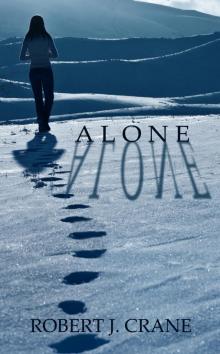 Alone: The Girl in the Box, Book 1
Alone: The Girl in the Box, Book 1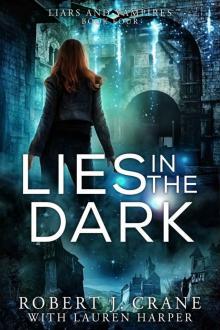 Lies in the Dark
Lies in the Dark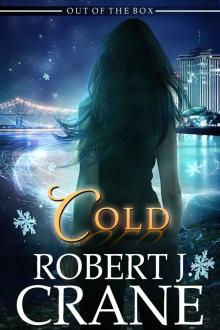 Cold
Cold The Gang of Legend
The Gang of Legend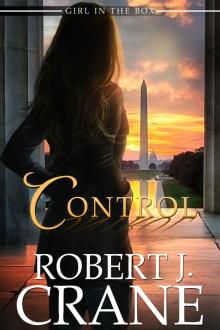 Control: Out of the Box (The Girl in the Box Book 38)
Control: Out of the Box (The Girl in the Box Book 38)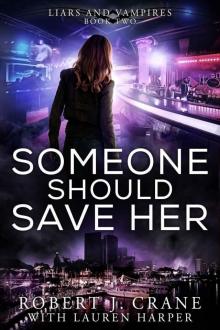 Someone Should Save Her
Someone Should Save Her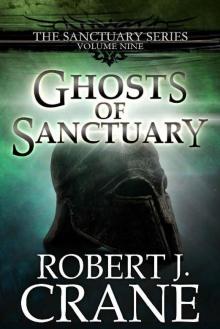 Ghosts of Sanctuary
Ghosts of Sanctuary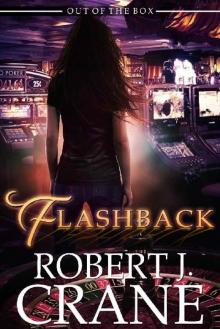 Flashback (Out of the Box Book 23)
Flashback (Out of the Box Book 23)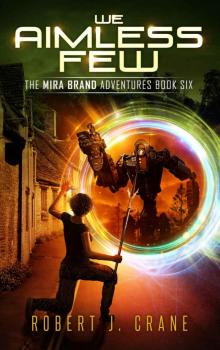 We Aimless Few
We Aimless Few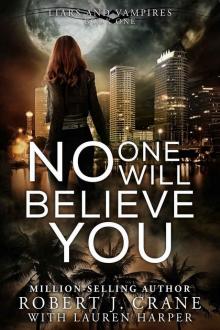 No One Will Believe You
No One Will Believe You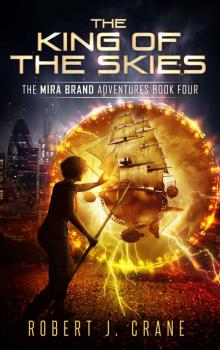 The King of the Skies
The King of the Skies Apex
Apex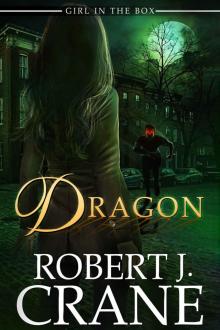 Dragon: Out of the Box (The Girl in the Box Book 37)
Dragon: Out of the Box (The Girl in the Box Book 37)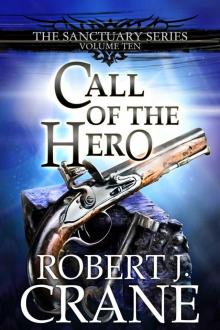 Call of the Hero
Call of the Hero Blood Ties
Blood Ties A Home in the Hills
A Home in the Hills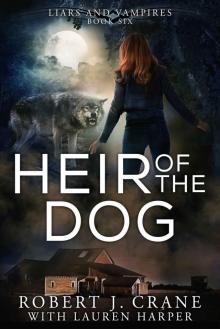 Heir of the Dog (Liars and Vampires Book 6)
Heir of the Dog (Liars and Vampires Book 6)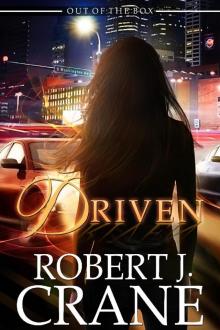 Driven
Driven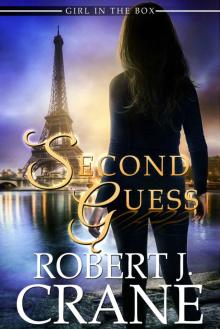 Second Guess (The Girl in the Box Book 39)
Second Guess (The Girl in the Box Book 39)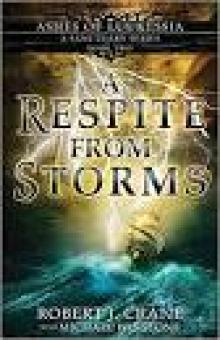 A Respite From Storms
A Respite From Storms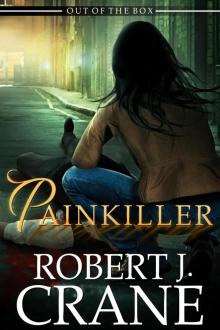 Painkiller
Painkiller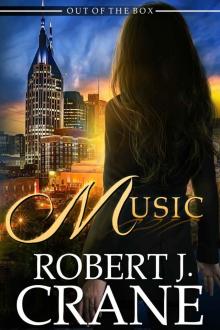 Music: Out of the Box 26 (The Girl in the Box Book 36)
Music: Out of the Box 26 (The Girl in the Box Book 36)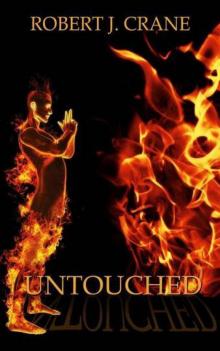 Untouched tgitb-2
Untouched tgitb-2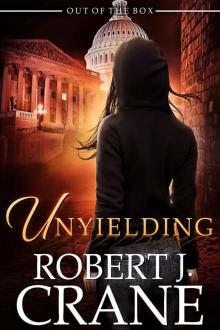 Unyielding (Out of the Box Book 11)
Unyielding (Out of the Box Book 11)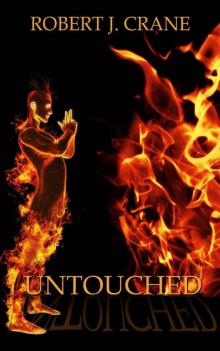 The Girl in the Box 02 - Untouched
The Girl in the Box 02 - Untouched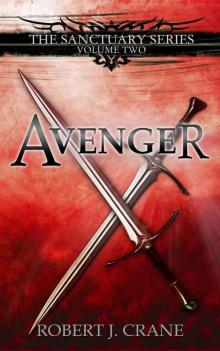 The Sanctuary Series: Volume 02 - Avenger
The Sanctuary Series: Volume 02 - Avenger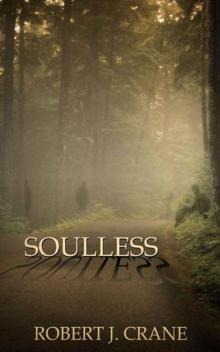 Soulless tgitb-3
Soulless tgitb-3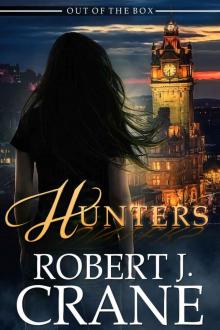 Hunters (Out of the Box Book 15)
Hunters (Out of the Box Book 15) Toxicity (Out of the Box Book 13)
Toxicity (Out of the Box Book 13)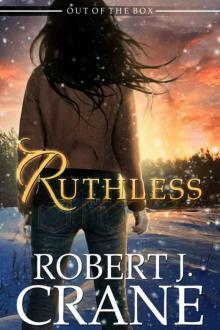 Ruthless (Out of the Box Book 3)
Ruthless (Out of the Box Book 3)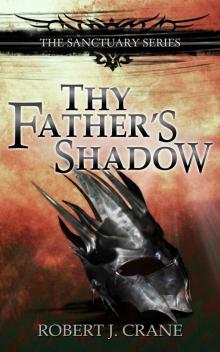 Thy Father's Shadow (Book 4.5)
Thy Father's Shadow (Book 4.5)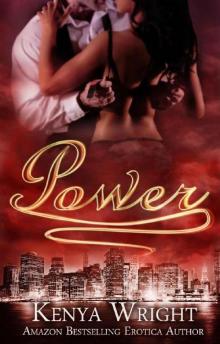 Power
Power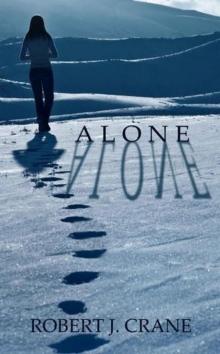 Alone tgitb-1
Alone tgitb-1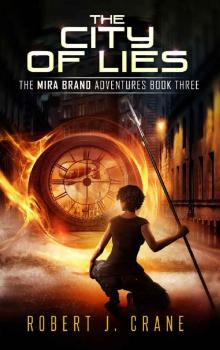 The City of Lies (The Mira Brand Adventures Book 3)
The City of Lies (The Mira Brand Adventures Book 3)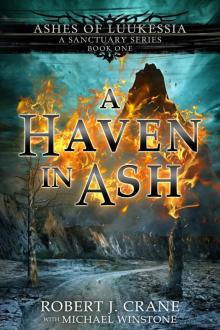 A Haven in Ash
A Haven in Ash Family
Family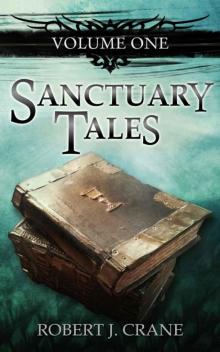 Sanctuary Tales (Book 1)
Sanctuary Tales (Book 1) Hero
Hero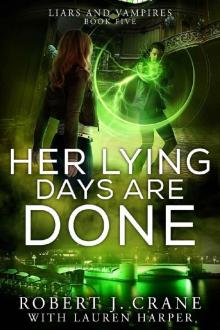 Her Lying Days Are Done
Her Lying Days Are Done![Crane, R [ Southern Watch 03] Corrupted Read online](http://i1.bookreadfree.com/i1/04/02/crane_r__southern_watch_03_corrupted_preview.jpg) Crane, R [ Southern Watch 03] Corrupted
Crane, R [ Southern Watch 03] Corrupted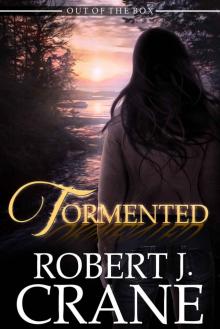 Tormented
Tormented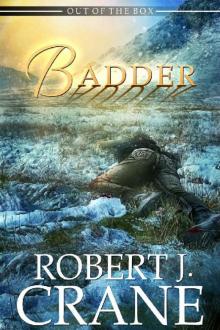 Badder (Out of the Box Book 16)
Badder (Out of the Box Book 16)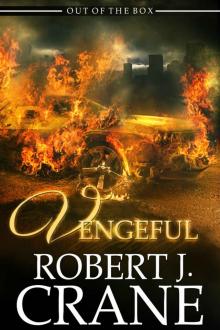 06 - Vengeful
06 - Vengeful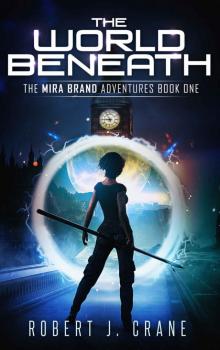 The World Beneath (The Mira Brand Adventures Book 1)
The World Beneath (The Mira Brand Adventures Book 1)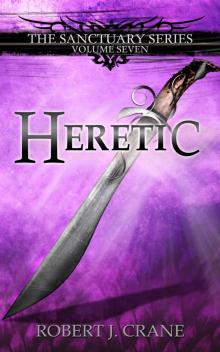 Heretic (The Sanctuary Series Book 7)
Heretic (The Sanctuary Series Book 7) Omega tgitb-5
Omega tgitb-5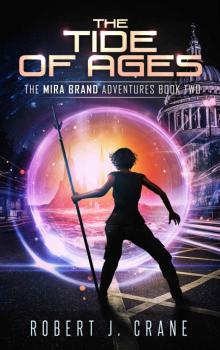 The Tide of Ages (The Mira Brand Adventures Book 2)
The Tide of Ages (The Mira Brand Adventures Book 2)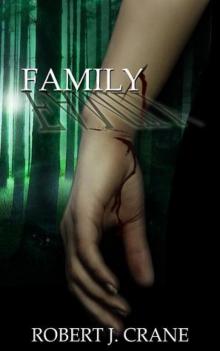 Family tgitb-4
Family tgitb-4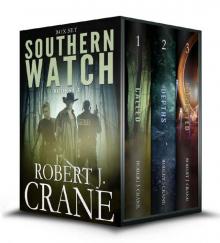 The Southern Watch Series, Books 1-3: Called, Depths and Corrupted
The Southern Watch Series, Books 1-3: Called, Depths and Corrupted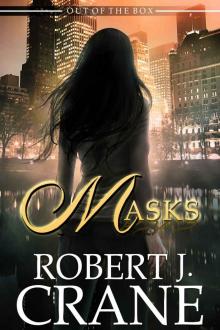 Masks (Out of the Box Book 9)
Masks (Out of the Box Book 9)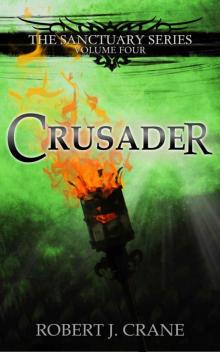 Crusader: The Sanctuary Series, Volume Four
Crusader: The Sanctuary Series, Volume Four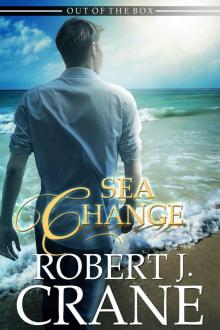 Out of the Box 7 - Sea Change
Out of the Box 7 - Sea Change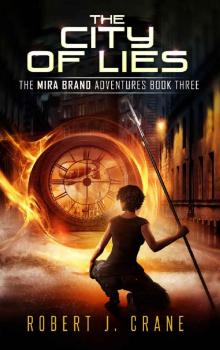 The City of Lies
The City of Lies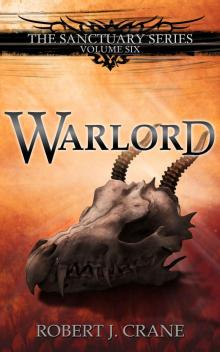 Warlord
Warlord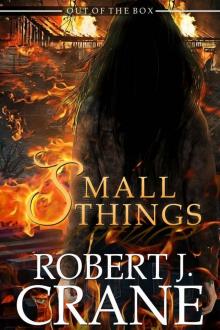 Small Things (Out of the Box Book 14)
Small Things (Out of the Box Book 14)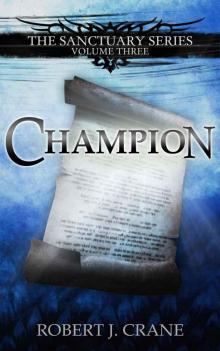 The Sanctuary Series: Volume 03 - Champion
The Sanctuary Series: Volume 03 - Champion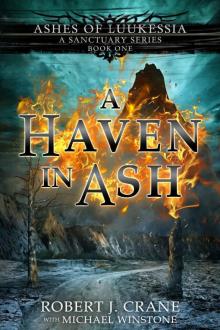 A Haven in Ash (A Sanctuary Series) (Ashes of Luukessia Book 1)
A Haven in Ash (A Sanctuary Series) (Ashes of Luukessia Book 1)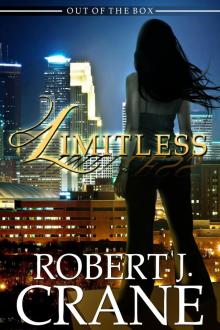 Limitless
Limitless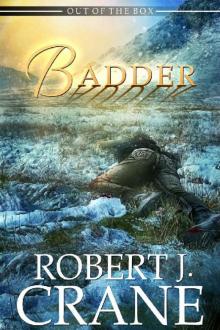 Badder
Badder Legend
Legend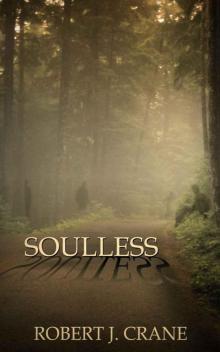 The Girl in the Box 03 - Soulless
The Girl in the Box 03 - Soulless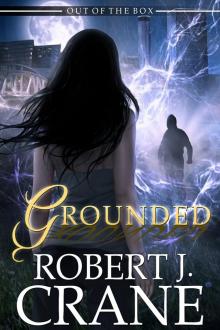 Grounded (Out of the Box Book 4)
Grounded (Out of the Box Book 4) In the Wind (Out of the Box Book 2)
In the Wind (Out of the Box Book 2)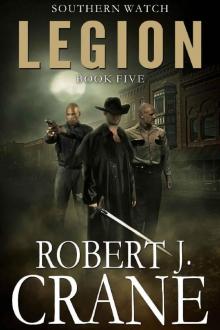 Legion (Southern Watch Book 5)
Legion (Southern Watch Book 5)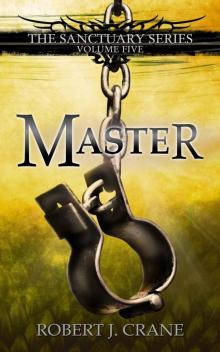 Master (Book 5)
Master (Book 5)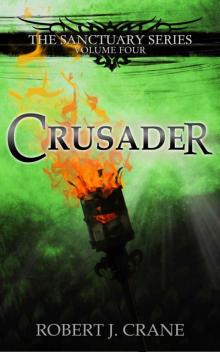 Crusader s-4
Crusader s-4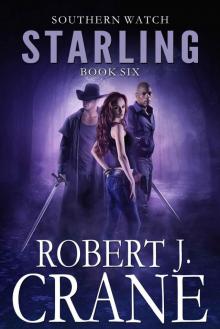 Starling (Southern Watch Book 6)
Starling (Southern Watch Book 6)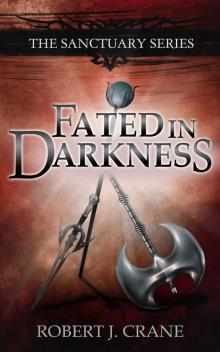 Sanctuary 5.5 - Fated in Darkness
Sanctuary 5.5 - Fated in Darkness